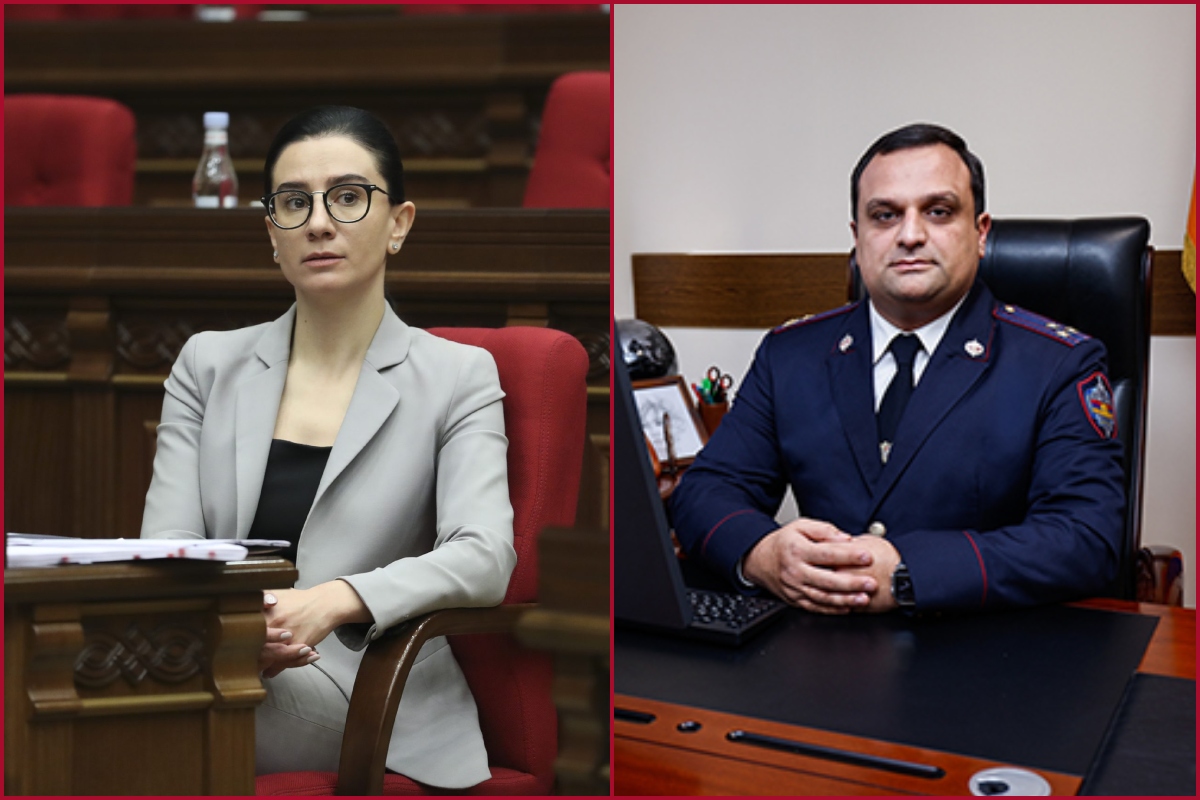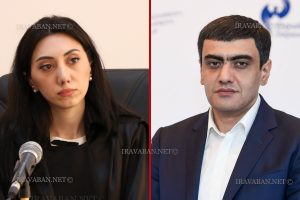The open competition to fill the list of candidates for the Deputy Prosecutor General position, who would oversee functions related to the confiscation of illegally obtained property, took place on January 22. The following individuals’ applications for inclusion in the list were approved:
– Edgar Arsen Arsenyan
– Gevorg Armen Kocharyan
It should be noted that both candidates are from the prosecutor’s system – Kocharyan has been in the system since December 2019, while Arsenyan since 2015.
Applications for this open competition were accepted until December 25, 2024. According to Iravaban.net, the competition was conducted by the Qualification Commission under the Prosecutor General, which was formed on April 26, 2021, by order of the Prosecutor General.
The Law on Prosecution states that if a candidate for Deputy Prosecutor General holds a prosecutor’s position, they can be appointed as Deputy Prosecutor General without competition by the Prosecutor General, in consultation with the Prosecution Board.
Prosecutor General Anna Vardapetyan decided not to appoint her deputy through this method, choosing instead to fill the vacant position through the Qualification Commission’s competitive process. In this case, the candidate(s) for Deputy Prosecutor General are selected by the Qualification Commission through a competition with secret ballot, requiring at least 6 votes from commission members. The Prosecutor General then appoints one of the candidates as Deputy Prosecutor General.
The Qualification Commission Under the Prosecutor General: What Requirements Are Set for Its Composition?
Changes were made to the commission’s composition on January 8 and 15, 2025. Edgar Arsenyan, who had applied for the vacant Deputy Prosecutor General position, was previously included in the commission. By the Prosecutor General’s January 8 order, Armen Panosyan replaced Edgar Arsenyan, and Christopher Lehmann replaced Vitali Kasko.
The commission now has the following composition (chairman and nine members):
– Aram Aramyan – Commission Chairman, Deputy Prosecutor General
– Armen Panosyan – Commission Member, Head of Department for Constitutional Order Foundations, State and Public Security Crimes at the Prosecutor General’s Office
– Artak Harutyunyan – Commission Member, Head of Department for Crimes Against Person at the Prosecutor General’s Office
– Karen Harutyunyan – Commission Member, Deputy Military Prosecutor
– Tatevik Sarukhanyan – Commission Member, Head of Department for Protection of State Interests at the Prosecutor General’s Office
– Tatevik Sujyan – Commission Member, Lecturer at YSU Faculty of Law’s Criminal Procedure and Criminalistics Department, PhD in Law, Associate Professor (by consent)
– Christopher Lehmann – Chair of Moldova’s Prosecutor Vetting Commission
– Sona Ayvazyan – Commission Member, Member of the Commission for Open Competitions for Prosecutors Dealing with Confiscation of Illegally Obtained Property (one-year term)
– Christine Gabuzyan – Commission Member, Lecturer at YSU Faculty of Law’s Civil Law Department, PhD in Law (by consent)
– Gnel Mughnetsyan – Commission Member, Lecturer at YSU Faculty of Law’s Constitutional Law Department, PhD in Law, Associate Professor (by consent)
According to current regulations, the Qualification Commission consists of nine members, and for open competitions related to confiscation of illegally obtained property, eleven members.
The commission includes one deputy prosecutor general appointed by the Prosecutor General, 4 prosecutors, and 4 legal scholars. For competitions related to confiscation of illegally obtained property, 2 additional experts are appointed by the Prosecutor General. These experts must have at least three years of scientific or practical experience in asset recovery or investigation of corruption crimes.
One legal scholar position on the commission remains unfilled.
Thus, the 4 prosecutors are Armen Panosyan, Artak Harutyunyan, Karen Harutyunyan, and Tatevik Sarukhanyan; the 3 legal scholars are Christine Gabuzyan, Gnel Mughnetsyan, and Tatevik Sujyan. The 2 experts, Christopher Lehmann and Sona Ayvazyan, were appointed by the Prosecutor General. Christine Gabuzyan, selected as a legal scholar, is also an advisor to the Prosecutor General.
It appears that the majority of the commission consists of individuals who are currently or were previously connected to the prosecutor’s office, which may raise questions about the commission’s objectivity and independence. Such composition is often perceived as a closed circle where decisions might be based on personal connections or existing beliefs within the institution rather than objective criteria.
Apparent Conflict of Interest
One of the candidates, Edgar Arsenyan, was also a member of the Qualification Commission. As mentioned earlier, he was replaced by Armen Panosyan by the Prosecutor General’s January 8 order.
Considering this, an independent observer might question whether the two candidates were on equal footing from the start.
The independence of the Qualification Commission is a crucial prerequisite for ensuring justice and effectiveness in the prosecution system. It should involve people who can impartially evaluate candidates without considering their collegial relationships, which seems impossible in the current commission and competition for Deputy Prosecutor General.
Moreover, Iravaban.net had submitted an inquiry to the Prosecutor General’s Office requesting:
– The link to the public announcement of the open competition for selecting two experts
– The number of applicants
– The summary document regarding the selection of candidates
– Copies of documents proving the three-year experience requirement for two commission members in asset recovery or corruption investigation
The Prosecutor’s Office only answered the question about when the commission was created. While one expert is no longer on the commission, Sona Ayvazyan remains a member.
The Prosecutor’s Office did not provide any requested information about Sona Ayvazyan’s qualifications, specifically:
– Three years of experience investigating corruption crimes, or
– Three years of scientific work in asset recovery, or
– Three years of practical work in asset recovery
The failure to provide such documents may raise reasonable doubts for an impartial observer about whether she meets the expert qualification requirements set by law.
Furthermore, the competitive appointment of a deputy prosecutor general becomes formal when those selecting them are not appointed to the qualification commission through an open and transparent process. It’s important to emphasize that the Prosecutor General “appoints” rather than “selects” the “independent” experts through an open, transparent competitive process. The appointment of experts by the Prosecutor General creates a dependency mechanism that could affect their voting. This mechanism allows the Prosecutor General to appoint “suitable” “independent” experts.
Additionally, while the competition took place on January 22, its results were published on January 23, violating the Law on Prosecution which requires same-day publication. According to the published announcement, “Edgar Arsen Arsenyan received a positive conclusion from the Qualification Commission.”
The announcement simply stated the winning candidate’s name rather than publishing complete competition results. Moreover, the announcement raises reasonable doubts that all commission members, including the Prosecutor General-appointed expert Sona Ayvazyan, unanimously voted for the Prosecutor General’s preferred candidate. This strongly contradicts international standards requiring full disclosure, including votes received by each candidate, number of voters, and decision justification.
It’s concerning that this occurs while Armenia has committed to ensuring public administration transparency under the UN Convention against Corruption, and GRECO continuously emphasizes the importance of prosecutorial system accountability.
As a result, we have a situation where the “open” and “transparent” competition for Deputy Prosecutor General becomes formal, raising reasonable doubts for an impartial observer that decisions are made behind closed doors and results are simply “confirmed” for a pre-selected candidate.
Thus, despite being announced as open and transparent, the competition process revealed violations: failure to meet legal deadlines, incomplete publication of voting results, and non-disclosure of commission members’ qualification documents. These issues could raise reasonable doubts about whether the declared transparency and accountability were merely formal. Notably, the winner was the candidate who, according to media reports, was previously a member of the qualification commission.
To avoid such formal approaches and ensure real transparency in the future, it is necessary to guarantee complete publication of voting results, transparency of commission members’ qualifications, and strict adherence to legally established deadlines and procedures.


















